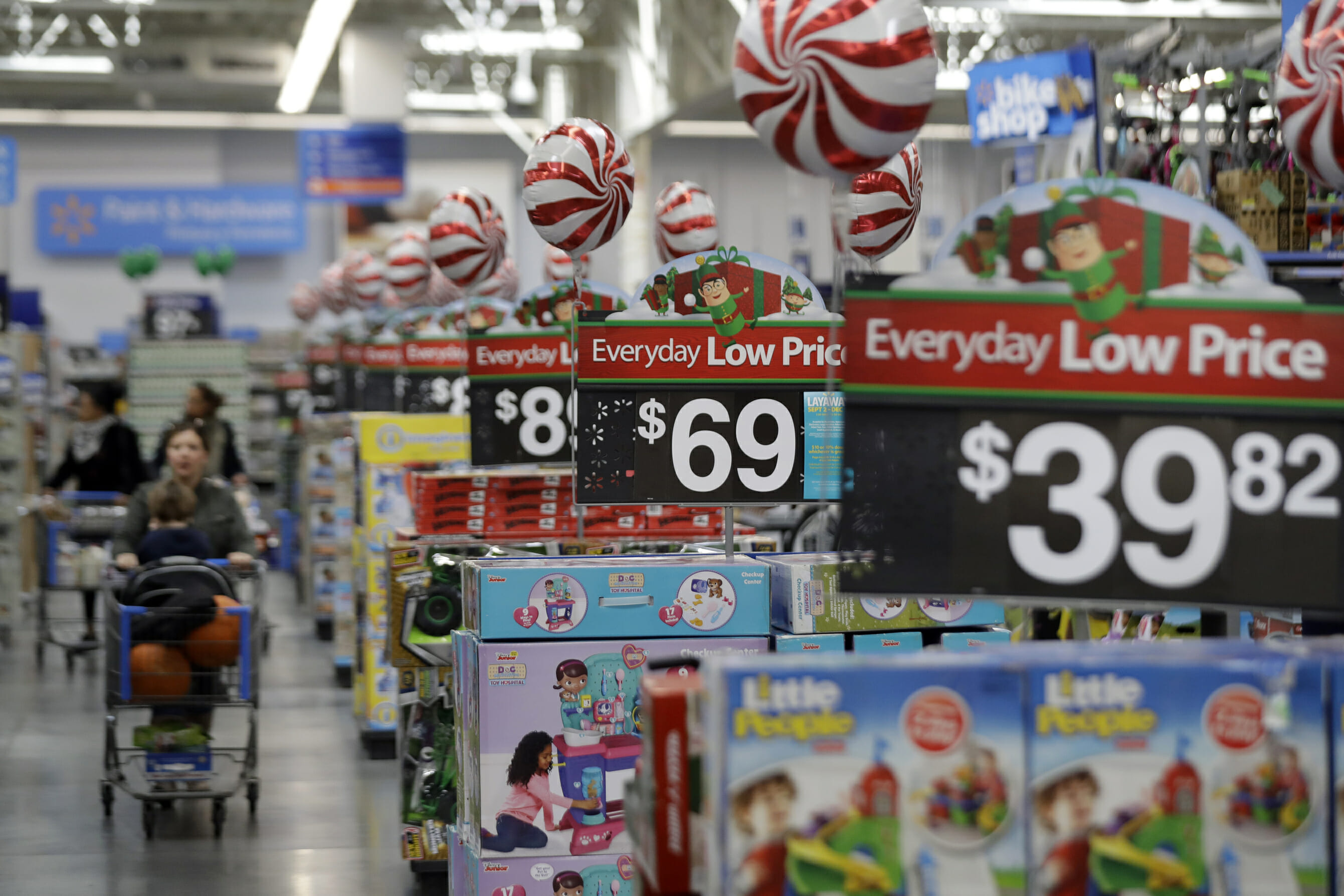
Retailers, shoppers could feel more pain if tariffs spread
NEW YORK (AP) — An escalating trade war between the U.S. and China could mean higher prices on a broad array of products from toys to clothing. But some retailers will be less equipped to handle the pain than others, leaving consumers to carry the load.
Analysts say big box giants like Target and Walmart who marked their latest quarter with strong performance are best positioned to absorb the higher costs because of their clout with suppliers. They’re also taking a judicious approach to price increases to lessen the impact.
The losers will be the ones that have been struggling all along — the mall-based clothing stores and others that sell commoditized products like basic sweaters or that don’t have the financial wherewithal to absorb extra costs.
Consumers, as well as most retailers, had been left largely unscathed by the first several rounds of tariffs that the U.S. imposed on China because they mostly focused on industrial and agricultural products. But that began to change when items like furniture saw an increase in tariffs to 25% two weeks ago.
Retailers will absorb the extra costs when those products arrive in U.S. ports in June. But now the Trump administration is preparing to extend the 25% tariffs to practically all Chinese imports not already hit with levies, including toys, shirts, household goods and sneakers.
Cowen & Co. estimates shoppers could see as much as 10% to 15% in price increases across all goods imported from China, which would mean an incremental cost of $100 billion or more.
Retail executives from a wide array of stores from Walmart to Kohl’s said on conference calls with analysts this week and last week that they remain optimistic about the financial health of the consumer, citing low unemployment and a strong economy. But shoppers could balk at paying higher prices on things they don’t need, especially those in the lower income bracket who are sensitive to any cost increases.
Analysts believe shoppers’ habits will change if the trade wars escalate and the next round of hikes stay in place for a while.
“It will change behaviors and change how much people buy and where people do that buying,” said Neil Saunders, managing director of GlobalData Retail.
Greg Petro, CEO of First Insight, a technology firm that advises retailers and brands on pricing decisions, believes that if prices do rise because of the new tariffs, they will be permanent but not all products will be hit the same way. For example, home decor is less sensitive to price increases than big furniture based on millions of data points his firm collects monthly. Women’s clothing is more sensitive to price hikes than men’s clothing. In children’s shoes, which lost a big player Payless ShoeSource, retailers will have more power to increase prices since the shoe supply has gone down, he said.
Meanwhile, UBS is offering a dire analysis of what the new tariffs could mean in terms of store closures. UBS was already forecasting that nearly 21,000 stores in the U.S. would shutter by 2026, but with the next round of tariffs, more than 50% of those closures would occur within one year instead of four, it said.
“We continue to think the apparel and footwear consumer’s willingness to spend remains tepid at best,” UBS retail analyst Jay Sole wrote in his report.
In fact, nearly 200 footwear retailers and brands including Adidas and Shoe Carnival wrote a letter to President Donald Trump on Monday calling for him not to slap tariffs on footwear imported from China.
The group, the Footwear Distributors and Retailers of America, estimates Trump’s proposed actions will add $7 billion in additional costs for customers every year.
Many retailers from Macy’s to Walmart warned that even though the escalating trade wars would mean higher prices for shoppers, the situation is still fluid.
Walmart said it’s been closely working with suppliers and says it will look at price increases on a case by case basis. Target’s CEO Brian Cornell said it will be able to weather the storm better than others because it sells a variety of items instead of focusing on a single product.
“Our ability to flex our focus from category-to-category is something that’s somewhat unique to Target versus single-category retailers,” he told analysts Wednesday.
Among department stores, the big concern is its private label clothing offerings, much of its sourced in China.
T.J. Maxx parent, on the other hand, which sells top brands at discounts and has been a darling in the retail world, sees itself benefiting from other retailers’ woes.
“Disruptions in the marketplace have created off-price buying opportunities for us,” Ernie Herrman, CEO of TJX Cos. told analysts earlier this week. “Further, because of our great values, if retail prices overall increase, that may create an opportunity for us to attract new customers.”
_____________
Follow Anne D’Innocenzio: http://twitter.com/ADInnocenzio
The Western Journal has not reviewed this Associated Press story prior to publication. Therefore, it may contain editorial bias or may in some other way not meet our normal editorial standards. It is provided to our readers as a service from The Western Journal.
Truth and Accuracy
We are committed to truth and accuracy in all of our journalism. Read our editorial standards.
Advertise with The Western Journal and reach millions of highly engaged readers, while supporting our work. Advertise Today.












